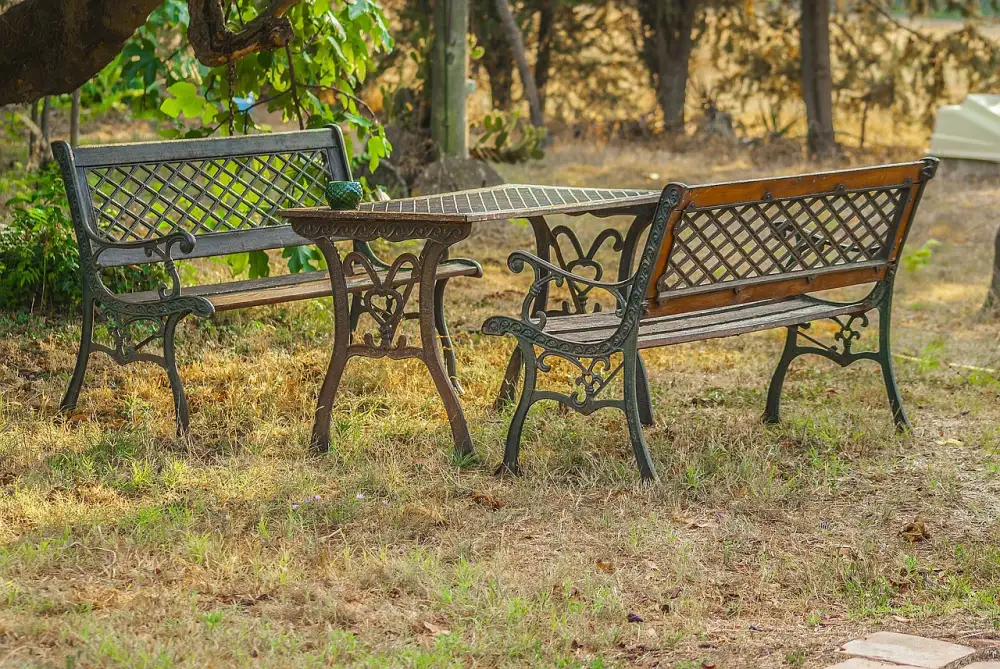Cast Iron Skillet Cleaning: Master the Art of Caring for Your Home Kitchen Essential

Cleaning a cast iron skillet may seem like a daunting task, but with the right techniques and a little bit of care, it can be a breeze. Cast iron skillets are beloved for their ability to retain heat and create deliciously crispy dishes. However, they require special attention when it comes to cleaning to maintain their seasoning and prevent rusting. In this article, we will guide you through the art of caring for your cast iron skillet, ensuring its longevity and optimal performance in your home kitchen. So let's dive in and master the art of cleaning your cast iron skillet!
Gather the necessary supplies for cleaning
To properly clean a cast iron skillet, it is important to gather the necessary supplies beforehand. Here are the items you will need:
1. Hot water: Make sure you have access to hot water as it helps in loosening any stuck-on food particles.
2. Soft brush or sponge: Choose a brush or sponge specifically designed for cleaning cast iron. Avoid using abrasive materials that can damage the skillet's surface.
3. Mild dish soap: While some purists prefer not to use soap on their cast iron skillet, a mild dish soap can be used sparingly for tougher stains or odors.
4. Salt or baking soda: These natural abrasives can be used to gently scrub away stubborn residue without causing any harm to the skillet's seasoning.
5. Paper towels or clean cloth: These are essential for drying the skillet after cleaning and before applying oil for seasoning.
6. Cooking oil: Opt for oils with high smoke points such as vegetable oil, flaxseed oil, or grapeseed oil. They help in maintaining the skillet's non-stick surface and prevent rusting.
By having these supplies ready, you'll be well-prepared to tackle any messes and keep your cast iron skillet in top-notch condition.
Preparing the skillet for cleaning
Before you begin cleaning your cast iron skillet, it's important to prepare it properly. Start by removing any food particles or residue from the surface of the skillet. You can use a stiff brush or a plastic scraper to gently scrape off any stuck-on bits. Avoid using metal utensils as they can scratch the seasoning.
Next, rinse the skillet under warm water to remove any remaining debris. Avoid using soap at this stage, as it can strip away the skillet's natural seasoning. If necessary, you can use a small amount of kosher salt as a gentle abrasive to help remove stubborn residue.
After rinsing, inspect the skillet for any rust spots. If you notice any rust, use a fine-grade steel wool or sandpaper to gently scrub away the rust until the surface is smooth again. Be sure to rinse off any loose particles before proceeding.
Once your skillet is clean and free of rust, pat it dry with a clean towel or paper towels. It's crucial to thoroughly dry the skillet to prevent moisture from causing rust or damaging the seasoning.
Now that your cast iron skillet is prepared for cleaning, you're ready to move on to the next step: actually cleaning it!
Cleaning the cast iron skillet
Cleaning the cast iron skillet is an important step in maintaining its longevity and ensuring optimal cooking performance. To clean the skillet, start by rinsing it with hot water while it's still warm. Avoid using soap or abrasive cleaners as they can strip away the skillet's seasoning. Instead, use a stiff brush or sponge to scrub away any food residue. For stubborn stuck-on bits, add a small amount of coarse salt and scrub gently. Rinse thoroughly and dry the skillet completely to prevent rusting. Remember, never soak the skillet in water or leave it wet as this can cause damage.
Drying and seasoning the skillet
Drying and seasoning the skillet is an important step in maintaining its longevity and preventing rust. After cleaning, use a clean towel to thoroughly dry the skillet. Make sure it is completely free of moisture before proceeding.
Once dry, it's time to season the skillet. Seasoning creates a protective layer on the surface, enhancing its non-stick properties and preventing food from sticking. To season, apply a thin layer of oil or fat all over the skillet, including the handle.
Next, place the skillet upside down in an oven preheated to 350°F (175°C). This allows any excess oil to drip off while baking. Bake for about one hour, then turn off the oven and let the skillet cool inside.
Repeat this process several times to build up a good seasoning layer. Each time you cook with your cast iron skillet, it will continue to develop its seasoning naturally.
Remember not to use soap or harsh detergents when cleaning as they can strip away the seasoning. Instead, use hot water and a brush or sponge to gently scrub away any food residue.
By properly drying and seasoning your cast iron skillet after each use, you'll ensure its longevity and enjoy many delicious meals for years to come.
Storing the cast iron skillet properly
Storing the cast iron skillet properly is crucial to maintain its quality and prevent rusting. After cleaning and drying the skillet thoroughly, it's important to store it in a dry place to avoid moisture buildup. One option is to place a paper towel or cloth inside the skillet to absorb any residual moisture. Another option is to lightly coat the skillet with a thin layer of oil before storing it. This helps create a protective barrier against rust. Lastly, make sure to store the skillet in a cool and dry cabinet or shelf, away from any other kitchen utensils that could potentially scratch or damage its surface. By following these storage tips, you can ensure your cast iron skillet remains in excellent condition for years to come.
Tips for maintaining a clean cast iron skillet
1. Avoid using soap: Soap can strip away the seasoning of your skillet. Instead, use hot water and a stiff brush to remove any food residue.
2. Dry thoroughly: After washing, make sure to dry your skillet completely to prevent rusting. Place it on low heat on the stovetop or in the oven for a few minutes to evaporate any remaining moisture.
3. Apply a thin layer of oil: Before storing your skillet, lightly coat it with a thin layer of oil. This helps prevent rust and keeps the seasoning intact.
4. Avoid soaking: Never soak your cast iron skillet as it can cause rusting. Clean it immediately after use to avoid stubborn stains.
5. Use wooden or silicone utensils: Metal utensils can scrape off the seasoning from your skillet. Opt for wooden or silicone utensils instead to protect its surface.
6. Re-season when necessary: Over time, the seasoning on your skillet may wear off. If you notice food sticking more often, it's time to re-season it by applying a new layer of oil and baking it in the oven.
By following these tips, you'll be able to maintain a clean and well-seasoned cast iron skillet that will last for generations to come!
In conclusion, mastering the art of cleaning a cast iron skillet is essential for maintaining its longevity and ensuring optimal cooking performance. By following the steps outlined in this article, you can easily keep your skillet in pristine condition.
Remember to always gather the necessary supplies before starting the cleaning process and to properly prepare the skillet by removing any food residue. Use gentle cleaning methods such as using hot water and a stiff brush or salt scrub to avoid damaging the seasoning.
After cleaning, make sure to thoroughly dry the skillet to prevent rusting and apply a thin layer of oil for seasoning. This will help maintain its non-stick surface and protect it from moisture.
Proper storage is also crucial. Store your cast iron skillet in a cool, dry place with a paper towel or cloth between other cookware to prevent scratching.
Lastly, regular maintenance is key. Avoid using harsh detergents or abrasive materials that can strip away the seasoning. Instead, opt for gentle cleaning methods and re-season as needed.
By taking care of your cast iron skillet, you can enjoy its exceptional cooking abilities for years to come. So embrace the art of caring for this kitchen essential and savor the flavors it brings to your culinary adventures!
Published: 22. 12. 2023
Category: Home



